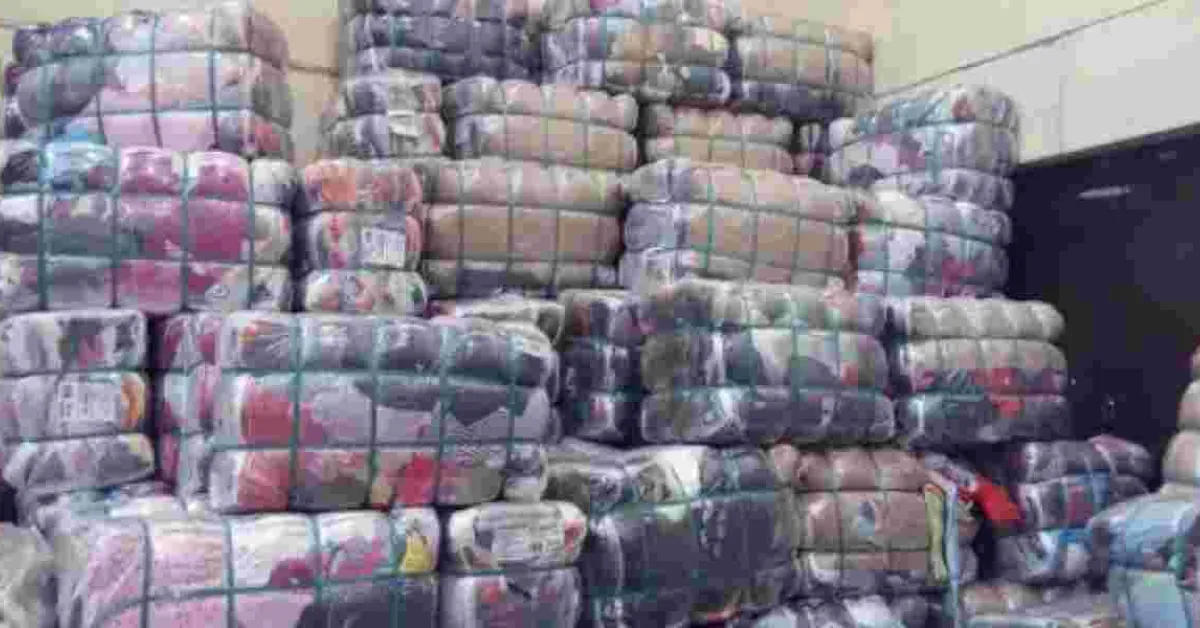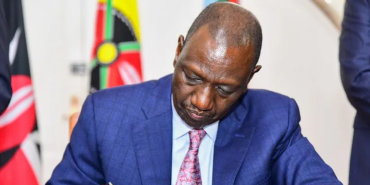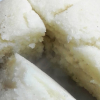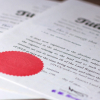Kenya Lifts Ban on Importation of Second-Hand Clothes and Shoes

The government has lifted a ban on importation of second-hand clothes and shoes, locally referred to as mitumba, effective immediately.
Kenya Bureau of Standards (KEBS) announced the lifting of the embargo on Sunday following the development of new protocols aimed at preventing the spread of Covid-19.
“The guidelines provide a framework for enforcing additional safety measures such as cleaning and fumigation of used textiles and shoes at the country of origin before baling, and at the wholesale or retail stores including surrounding areas every day at the closure of business,” said KEBS Managing Director Bernard Njiraini.
Under the new guidelines, importers of used clothes and shoes are also required to register with KEBS and identify the country of origin of bales to enable their traceability.
“In addition, clearance of used textiles and shoes shall only be undertaken through Kilindini port and the Inland Container Depot Nairobi (ICDN). Traders and interested parties can access the protocols on the KEBS website at www.kebs.org,” Njiraini added.
In the new rules, traders have been prohibited from importing certain second-hand attires, mainly undergarments.
They include pajamas, nightdresses, nightgowns, patient hospital wear, and used bath towels. Others are women's briefs, men’s briefs, brassieres, camisoles, socks, stockings, petticoat, sandals, slippers, and indoor footwear.
The government banned the importation of mitumba in March after the World Health Organization (WHO) declared the novel coronavirus a pandemic.
KEBS said the ban was lifted following consultations with WHO and the Centre for Disease Control and Prevention.














Comments
Coronavirus is dangerous and…
Permalink
Coronavirus is dangerous and catastrophic right now. Made in china clothes are cheaper than used garbage
This has nothing to do with…
Permalink
This has nothing to do with Corvid. It is Trump acting on the used clothes lobby and Uhuru bending over.
People should realize that…
Permalink
People should realize that dead people's clothes among others; are donated to thrifty stores that package them and sell them by the kilos to agents who send them to Africa. Kenya alone receives more than 100,000 tonnes of this crap per year! Rwanda has already refused to allow this trash to be used by their people- hongera to them. In fact US is doing all she can to punish president Kagame for standing up for his country. Kenya on the other hand is too cowardly,chicken, weak and corrupt to say no to used clothes peddlers. Now, with corona virus ravaging the entire world, Kenya has made a serious mistake of allowing used clothes into the country and this could have a deadly impact if such clothes bring covid-19 at home. It's impossible to social distance from a corona infected piece of cloth that you're wearing if such came from a person who died of corona virus in US- or elsewhere. The corona virus that you get next time could very well be the one you buy with your own money. Say no to used clothes from abroad.
Nimesema mara nyingi ya…
Permalink
Nimesema mara nyingi ya kwamba, mtu akikudharau:
1. Anakupa majina yake
2. Lugha yake
3. Mila zake.
4. Imani yake
5. Historia yake
6. Mwishowe anakuuzia nguo zake alizovaa na hazipendi
tena. Kwa Kiswahili zinaitwa "Mitumba."
7. Anakufundisha kujichukia ili akuuzie mafuta ya
kugeuza rangi ya ngozi yako. Isitoshe, anakufundisha
kuchukia nywele za asili yako ili akuuzie nywele
bandia!!!
Kabla Kenya haijapata uhuru (12/12/1960 tulikuwa na viwanda vyetu vilivyotengeza pamba na kushona nguo kwa wananchi wote. Imekuwaje baada ya karibu miaka 57 tangu tulipopata uhuru tunanunua na kuvaa nguo za watu wengine wa kigeni ambao wangali wakitudharau!
SULUHISHO: Tufanye kazi kwa bidii kwa kupanda pamba yetu, halafu tuipeleke kwenye viwanda vyetu ambavyo vitashughulikia kushona nguo zitakazovaliwa katika nchi yetu na pia katika nchi zote katika bara la Afrika.
Ni lazima tukatakate minyororo ya ukoloni kwenye fikira zetu kwa vitendo, siyo kwa maneno bila vitendo!
Big mistake!! Kenyans,…
Permalink
Big mistake!! Kenyans, welcome to Covid-19 delivered to your doorstep. How can our colonizers in 2020 be allowed to dump clothes from dead Corona virus patients in their countries direct to the black nation.
We never learn, do we?
In 1851 Lord Amherst's "shameful plan" was recorded- a plan to exterminate (Native Indians) by giving them small-pox infected blankets taken from the corpses of British soldiers at Fort Pitt. Ref: (Parkman 1991:646_651)
With Covid-19, dumping clothes from Covid-19 patients in Western nations to black nations should be looked at as war against the black nation.
Kenyans and Africans should individually reject such clothes. We should no longer accept to be called or treated as Shit-hole countries.
When will this nonsense stop…
Permalink
When will this nonsense stop surely? Can't we have our own textile industry? We used to at one point and this created employment.
Samahani sana. Niliposoma…
Permalink
Samahani sana. Niliposoma mambo niliyoandika jana, nilikosea siku Kenya kupata uhuru. Kunradhi!
Kenya ilipata uhuru kutokana na kutawaliwa na wageni (Waingereza) tarehe 12/12/1963.
All should read, NOT YET…
Permalink
All should read,
NOT YET UHURU.
We've killed most of our local industries to benefit just but a few...
Textile
Sugar
Fish
Rice
Coffee
Tea
Etc.
Add new comment